Why study this course with LJMU?
- The School of Sport and Exercise Sciences is ranked first in the North West and top 20 in the world for Sports Science (QS World University Rankings 2025)
- Taught in a 25 million state-of-the-art building with world-class laboratories and equipment
- Excellent employment prospects in elite performance or promotion of healthy lifestyles
- Option to undertake work placement of up to 12 months
- Options to study abroad for part of the degree with support from schemes such as the Go Global Fund and Erasmus+
- This degree is available to study following a foundation year
- International Foundation Year course available offering direct progression onto this degree programme - visit LJMU's International Study Centre to find out more
About your course
The BSc (Hons) Sport and Exercise Science degree is delivered by world-leading experts in state-of-the-art facilities in our award-winning Tom Reilly Building.
Sports scientists work in the sports industries with athletes, coaches and governing bodies to help improve elite performance or in communities promoting healthy lifestyles. Through the multi-disciplinary study of the behavioural, physical and life sciences, this degree prepares you for a highly rewarding career in sports or exercise contexts. This includes scientific support, rehabilitation, exercise training and health promotion.
The foundations and principles underpinning sport and exercise science are covered in the first two years. This provides the multi-disciplinary grounding recommended by the British Association of Sport and Exercise Sciences (BASES). In the final year there is discipline specialisation and an independent research project led by the student.
Thanks to strong links with industry partners, we have a clear understanding of the needs and expectations of employers and are able to design the course with your future employability in mind. Formal work-related learning opportunities are provided in the final year, during which you will apply the skills and theory you have learnt through an applied placement module.
Many of our graduates continue onto postgraduate study to allow them to compete for the top sport and exercise science jobs in the country. The School of Sport and Exercise Sciences at LJMU is one of the best places in the country to study sport and exercise science. It pioneered the first degree of its kind in 1975 and is now formally recognised as a centre for world-leading research in the field.
Course modules
What you will study on this degree
Further guidance on modules
Modules are designated core or optional in accordance with professional body requirements, as applicable, and LJMU’s Academic Framework Regulations. Whilst you are required to study core modules, optional modules provide you with an element of choice. Their availability may vary and will be subject to meeting minimum student numbers.
Where changes to modules are necessary these will be communicated as appropriate.
Core modules
Research Methods 1
20 credits
20 credits
This module will introduce you to the fundamental concepts of research methods, along with covering the basic application and interpretation of various data analysis techniques.
Exercise Physiology 1
20 credits
20 credits
This module will develop your knowledge and understanding of the basic structure and function of key physiological systems, metabolic processes and discuss how these systems and processes respond to feeding and acute exercise.
Psychosocial Principles of Sport and Exercise
20 credits
20 credits
This module will develop your knowledge and understanding of the psychosocial concepts that underpin the sport and exercise environment.
Human Movement
20 credits
20 credits
This module will introduce you to the basic principles of human anatomy, functional movement, biomechanics, and motor skill acquisition, and to illustrate applications of these principles in sport, exercise, and health. The module also aims to introduce you to experimental methods in biomechanics and to develop skills in data handling.
Professional Practice in Sport and Exercise Science 1
20 credits
20 credits
This module helps you to develop an understanding of the concepts, skills and competencies underpinning inter-disciplinary applied sport and exercise science practice. You will develop computing competency, practical skills and measurement techniques relevant to applied sport and exercise science settings.
Physical Activity and Health 1
20 credits
20 credits
This module introduces you to the principles underpinning the promotion of physically active, low sedentary, healthy lifestyles. The module also aims to provide an introduction to quantitative and qualitative methodologies in physical activity and sedentary behaviour research, developing your skills of data analyses and interpretation.
Core modules
Research Methods 2
20 credits
20 credits
This module will enhance your understanding of the research process and related methodological approaches, whilst also developing your knowledge, skills and to complete investigations involving data collection, analysis and interpretation.
Exercise Physiology 2
20 credits
20 credits
This module will develop your knowledge and understanding of the cardiovascular and metabolic responses of acute and chronic exercise. This will enable you to discuss these in relation to human health and performance.
Sport and Performance Psychology
20 credits
20 credits
This module will develop your ability to evaluate psychological principles associated with sport performance, motor control and learning, considering individual (e.g., personality) and environmental (e.g., culture) factors.
Professional Practice in Sport & Exercise Science 2
20 credits
20 credits
This module develops your skills, knowledge and abilities as a professional practitioner in sport and exercise science. This enables you to enhance your practical skills and theoretical knowledge to allow you to audit a ‘client’s’ requirements and effectively communicate outcomes of a consultation. This module also aims to develop your understanding of the requirements for professional behaviour and how to be inclusive.
Physical Activity and Health 2
20 credits
20 credits
This module develops your theoretical knowledge and understanding of socio-ecological influences on physical activity and sedentary behaviour through analysis of scientific literature in different population sub-groups. It also aims to analyse the strengths and limitations of methods to assess physical activity and sedentary behaviour, and to equip you with the skills to conduct a brief assessment of physical activity with a client, including assessment administration, analysis and feedback.
Biomechanics
20 credits
20 credits
This module aims to give you the knowledge and technical ability to describe, measure and explain human movement using the application of biomechanical principles, with the aim of improving performance and reducing the risk of injury.
Optional Modules
Sandwich Year - Sport and Exercise Science
120 credits
120 credits
This module will provide you the chance to spend an extended period of work experience at an approved partner that will complement your programme of study at LJMU. This will give you the opportunity to develop professional skills relevant to your programme of study as well as the attitude and behaviours necessary for employment in a diverse and changing environment.
Study Year Abroad - Sport and Exercise Science
120 credits
120 credits
The aim is to provide students with an additional year of study at an approved overseas partner that will complement their programme at LJMU. This is an additional year of full-time study at an approved higher education institution. The modules to be studied must be agreed in advance, and must be appropriate for the student's programme of study. Assuming successful completion of this year, mark-bearing credit will be awarded by the Faculty Recognition Group. The grade conversion scale to be used will be made available in advance of the year abroad.
Study Semester Abroad - Sport and Exercise Science
60 credits
60 credits
This module aims to provide you with a semester of study at an approved overseas partner to replace one semester of your LJMU programme at level 5. The modules to be studied must be agreed in advance, and must be an appropriate substitute for the modules being replaced.
Core modules
Major Project
40 credits
40 credits
This module will critically extend your understanding and deployment of research processes through the planning, production, analyses and report of a piece of independent research conducted in a responsible, safe and ethical manner.
Applied Placement in Sport and Exercise Science
20 credits
20 credits
This module aims to provide you with the opportunity to develop and reflect on your theoretical knowledge and applied practice skills by engaging in a work related learning project.
Optional Modules
Applied Motor Behaviour
20 credits
20 credits
This module will provide you with a critical understanding of contemporary issues in motor behaviour, and the ability to synthesise and apply findings to sport, exercise and health settings.
Current Issues in Sport and Exercise Psychology
20 credits
20 credits
This module will help to develop your ability to critically evaluate contemporary issues in sport and exercise psychology that influence participants' performance, physical activity, wellbeing, health, and development.
Behaviour change
20 credits
20 credits
This module will engage you in current behaviour change theories, concepts and applied examples across the physical activity, nutrition, sport performance and health disciplines. In doing so, you will gain a theoretical underpinning in behaviour change and insight into how to change behaviours across a range of settings/populations/disciplines.
Performance Analysis in Sport
20 credits
20 credits
This module will develop your theoretical knowledge, applied understanding and skills in performance analysis of sport. In doing so, you will improve your ability to review and critique performance analysis application across sports.
This module provides an opportunity to develop your theoretical knowledge and applied skills of assessment and analysis of sport performance domains. You will develop the critical thinking skills required for performance analysis and translation of performance analysis information to the daily sport practice.
PE Teacher Education
20 credits
20 credits
This module will provide you with the knowledge and understanding of the current practices of Physical Education and school sport within the 14-19 National Curriculum. During the course you will also develop a critical understanding of examinations and awards within Physical Education for 14–19-year-olds. The module will enable you to plan and deliver within a 14-19 years setting thereby providing a contextual opportunity to develop personal teaching, learning and assessment approaches in Physical Education.
Interdisciplinary Coaching Science
20 credits
20 credits
This module integrates a sport science and coaching interdisciplinary outlook to creating an evidence-based approach of an athletes annual training plan encompassing critical thinking around potential performance problems and solutions. This module will require you to demonstrate an ability to critically evaluate the key concepts and challenges of programme design and delivery through problem-based learning. This will provide you with the knowledge to discuss how an interdisciplinary team can work together to provide bespoke performance solutions.
Sports Biomechanics
20 credits
20 credits
The aim of this module is for you to gain the knowledge and skills necessary to evaluate sports biomechanics in performance and injury contexts.
Physical activity across the lifecourse
20 credits
20 credits
This module aims to engage you in current physical activity and health concepts linked to stages of the life course. You will gain experience of using physical activity and sedentary behaviour measurement tools via practical sessions and an understanding of the principles of intervention design, evaluation and health inequalities.
Exercise Metabolism
20 credits
20 credits
This module aims to develop your understanding of the regulation of the metabolic processes by which muscles are provided with energy during exercise, as well as examining the molecular mechanisms underpinning muscle adaptation to exercise training.
Clinical Biomechanics
20 credits
20 credits
The aim of this module is for you to gain the knowledge and skills necessary to evaluate (1) gait through quantitative analysis and (2) the role of muscle and tendon function and adaptation that contribute to locomotor impairments.
Physical Activity for people with long term conditions
20 credits
20 credits
This module aims to engage you in key physical activity, sedentary behaviour and health intervention concepts for people with long term medical conditions. It will explore current evidence and practice related to promoting physical activity and reducing sedentary time, across a range of settings/environments and the effectiveness of physical activity as a non-pharmacological management strategy.
Environmental Physiology
20 credits
20 credits
This module is designed to critically examine the limitations to health and performance under various environmental stressors and will examine how these limitations can be ameliorated with appropriate adaptation strategies and exercise interventions.
Health & Performance Nutrition
20 credits
20 credits
This module firstly aims to introduce fundamental knowledge in nutrition related to methods to measure energy intake/expenditure and body composition, macro- and micronutrients. This knowledge will underpin the second aim of understanding how macronutrients, micronutrients and ergogenic aids can be used effectively to enhance sports performance, training adaptation, and exercise recovery.
Strength and Conditioning
20 credits
20 credits
Within this module you will learn how to implement strength and conditioning concepts and principles in the applied sporting environment. Specifically, you will develop the knowledge and skills needed to perform a needs analysis of an athlete, analyse data against theoretical norms and programme design. Alongside this, you will gain the opportunity to practise and explore the correct ways to administer safe and effective training-interventions.
Cardiovascular Physiology
20 credits
20 credits
This module aims to develop a critical understanding of cardiovascular measurement techniques and exercise based tests, and their application in the diagnosis and management of cardiovascular disease. The module explores the use of exercise as a preventive or treatment strategy for cardiovascular conditions, and examines current inequalities in the diagnosis and treatment of cardiovascular disease.
Professional accreditation/links
The course is endorsed by the British Association of Sport and Exercise Sciences (BASES) Undergraduate Endorsement Scheme.
LJMU is a member of ASET, the UK’s leading authority on work-based and placement learning (WBPL). This membership reflects our commitment to providing students with high-quality WBPL experiences that are well-supported and aligned with best practice guidelines.
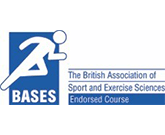
Your Learning Experience
Excellent facilities and learning resources
We adopt an active blended learning approach, meaning you will experience a combination of face-to-face and online learning during your time at LJMU. This enables you to experience a rich and diverse learning experience and engage fully with your studies. Our approach ensures that you can easily access support from your personal tutor, either by meeting them on-campus or via a video call to suit your needs.
Teaching is via a combination of lectures, interactive seminars, one-to-one tutorials, online activities, laboratory-based practical work and group work. Guided independent study using our libraries, laboratories and the web accounts for 70-80% of each module. Web-based content is also available through our virtual learning environment.
Work-related learning
Work experience plays a key role in your career development. In your final year, you'll complete an applied placement to practise what you've learned and gain a head start in the job market. You can also choose an optional Sandwich Year in your third year for a full year of work-based learning.
Dedicated personal tutor, plus study skills support
From day one of the degree programme, you will be allocated a personal tutor and remain under their guidance throughout your time at LJMU. They will be available to discuss any academic or personal issues on a one-to-one basis as well as helping you to put together your educational and future career plans. You will also work with your personal tutor in small groups to develop study skills essential for the sport and exercise sciences programme.
The school is fully committed to promoting a learning environment that supports a culture of equality, diversity and inclusivity (EDI) and has a Disability Support Coordinator, an EDI Coordinator and a School EDI Working Group. Personal Tutors also play a vital role in promoting awareness of support services for students.
Assessment varies depending on the modules you choose, but will usually include a combination of exams and coursework.
All students perform differently depending on how they are assessed, which is why we use a combination of assessment methods. These include: written assignments (essays, lab reports, literature reviews), exams (MCQ, seen and unseen), practical work, portfolios, presentations (group and individual), and reflective practice/diaries. You will also be expected to complete a dissertation in your final year.
Your tutors will provide feedback on assessments within three weeks, allowing you to quickly identify your successes and the areas where you may need to put in more work. This is provided via our virtual learning environment, face-to-face and/or as written comments for coursework and one-to-one for exams. You are also welcome to arrange further meetings with staff to discuss your feedback.
Where you will study
You will study in Liverpool city centre at our City Campus. Our sport and exercise sciences facilities are world-leading and feature state-of-the-art laboratory facilities for our current and future sport scientists. The Avril Robarts library is within easy walking distance and here you'll find all the information you need to support your studies.


I 100% believe that if I didn't come to LJMU I would have had to choose between Water Polo and my degree, but I can say I have a Commonwealth Gold Medal, captained a World University Games and achieved a 1st class degree and that is all because of LJMU!
Career paths
The diversity of careers that our graduates pursue is testament to the variety of skills you develop during your course.
Some students continue their studies at master’s level at LJMU in sport and clinical biomechanics, sport psychology, sport and exercise physiology, sport nutrition, strength and conditioning and teaching. You may also study other master’s degrees, such as physiotherapy.
Whatever your career choice, the transferable skills you will gain on the course are sought after by a wide range of employers, many of whom tell us they value our graduates because they "think differently and have excellent people skills".
Find out more about career opportunities in sport and exercise sciences.
Student Futures - Careers, Employability and Enterprise Service
A wide range of opportunities and support is available to you, within and beyond your course, to ensure our students experience a transformation in their career trajectory. Every undergraduate curriculum includes Future Focus during Level 4, an e-learning resource and workshop designed to help you to develop your talents, passion and purpose.
Every student has access to Careers Zone 24/7, LJMU's suite of online Apps, resources and jobs board via the LJMU Student Futures website.
Tuition fees and funding
- Full-time per year:
- £9,535
- Placement year:
- £1,905
The University reserves the right to increase tuition fees in accordance with any changes to the maximum allowable fees set by the UK Parliament. In the event of such a change, any fee increase will be subject to a maximum cap of 10% of the total course cost as originally stated at the time of your offer.
The fees quoted above cover registration, tuition, supervision, assessment and examinations as well as:
- library membership with access to printed, multimedia and digital resources
- access to programme-appropriate software
- library and student IT support
- free on-campus wifi via eduroam
Additional costs
Although not all of the following are compulsory/relevant, you should keep in mind the costs of:
- accommodation and living expenditure
- books (should you wish to have your own copies)
- printing, photocopying and stationery
- PC/laptop (should you prefer to purchase your own for independent study and online learning activities)
- mobile phone/tablet (to access online services)
- field trips (travel and activity costs)
- placements (travel expenses and living costs)
- student visas (international students only)
- study abroad opportunities (travel costs, accommodation, visas and immunisations)
- academic conferences (travel costs)
- professional-body membership
- graduation (gown hire etc)
Funding
There are many ways to fund study for home and international students. From loans to International Scholarships and subject-specific funding, you'll find all of the information you need on our specialist funding pages.
- Full-time per year:
- £18,250
- Placement year:
- £3,830
International Scholarships and payment plans
Liverpool John Moores University is committed to supporting international students by providing a range of scholarships and flexible payment plans to help students manage their tuition fees.
Scholarships
LJMU provides a variety of scholarships to support international students. Scholarships are available to self-funded students who have accepted their offer and met all the conditions outlined in their offer letter. Students must also demonstrate that they can cover living costs, travel, and other expenses associated to studying at the university. Postgraduate scholarships include tuition fee reductions and are often offered in partnership with external funding organisations.
All self-funded international students are eligible for an automatic scholarship worth up to £4,000. For more details and to view our full list of scholarships, visit the international scholarship webpages.
Deposit
All students must pay a £5,000 deposit before they can receive their CAS letter.
For more information view our deposit page.
Tuition Fee Payment Plan
After paying their £5,000 deposit, students have the option to pay their fees in full or in three equal instalments minus any internal scholarships and discounts. There are two payment options available for international students. You can either pay your tuition fees in full before enrolment or opt for a payment plan. With the payment plan, you can pay your fees in three instalments after making your £5,000 deposit. The first instalment is due before enrolment.
All payments should be made through Flywire. Full details can be found in the How to Pay Guide.
Early Bird Tuition Fee discount
We are excited to introduce a £500 Early Payment Discount to all self-funded international students. Eligible self-funded students who pay their fees by the required deadlines will get a discount which will be automatically deducted from the 1st year of tuition fees.
To see the required deadlines please visit the webpage
A DBS check is not required for your application, however a DBS may be required for modules where there is a work based learning placement option. Work based learning placements that do not require a DBS check are available.
Entry requirements
Please choose your qualifications below to view requirements
Grades/points required from qualifications: BBB-ABB (120-128)
Work out how many UCAS points your qualifications are worth by visiting the UCAS Tariff Calculator.
Qualification requirements
GCSEs and equivalents
Grade 4 or grade C or above in English Language and Mathematics/ Numeracy.
GCSE Equivalences accepted:
• Key Skills Level 2 in English/Maths
• NVQ Level 2 Functional skills in Maths and English Writing and or Reading
• Skills for Life Level 2 in Numeracy/English
• Higher Diploma in Maths/English
• Northern Ireland Essential Skills Level 2 in Communication or Application of Number
• Wales Essential Skills Level 2 in Communication or Application of Number
A levels
BBB-ABB
Minimum Number of A Levels: 2
Maximum AS UCAS Points: 20
General Studies: Not accepted
At least one Science subject. PE, Psychology and Maths included as Science.
BTECs
Extended Diploma: DDM
Access awards
Acceptable on its own and combined with other qualifications
Pass overall with a minimum of 120 points including relevant subjects
International Baccalaureate
Acceptable on its own and combined with other qualifications From a relevant subject
OCR Cambridge Technical
Extended Diploma: DDM
Irish awards
Acceptable on its own and combined with other qualifications From a relevant subject
T levels
Acceptable on its own and combined with other qualifications.
You need to obtain the required UCAS points from a related subject area.
International requirements
IELTS
6.0 overall with no component below 5.5, taken within two years of the course start date.
https://www.ljmu.ac.uk/study/courses/international-entry-requirements
Please Note: All international qualifications are subject to a qualification equivalency check.
How to apply
Securing your place at LJMU
UCAS is the official application route for our full-time undergraduate courses. Further information on the UCAS application process can be found here https://www.ljmu.ac.uk/study/undergraduate-students/how-to-apply.
We want students who are intrigued by the science of sport and exercise, and are interested in learning about the role that science plays in sport performance, sport development and exercise settings.
Students should be motivated, enthusiastic and pro-active with an ability to accept responsibility for their own academic and personal development.
Your university life
From accommodation and academic support to clubs and societies. Find out what LJMU has to offer.
Related Links
Talk to our students
Connect with a current LJMU student for advice and guidance on university life, courses and more.
See what our students are saying
At LJMU we want you to know you're making the right choice by studying with us. You can see what our students are saying about their experience with us through their reviews on the following websites:
Related Links
News and views
Browse through the latest news and stories from the university
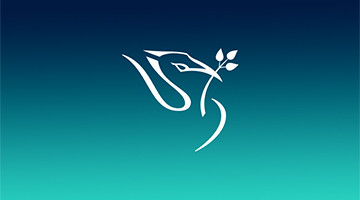
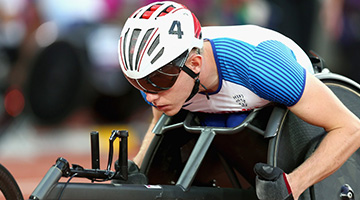

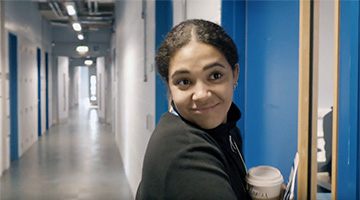
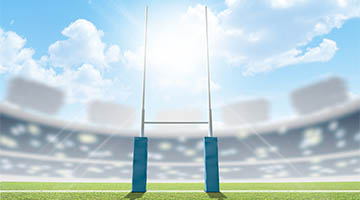
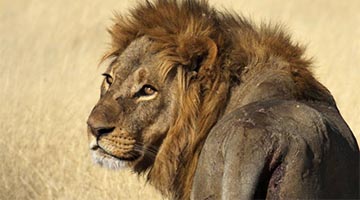
The university reserves the right to withdraw or make alterations to a course and facilities if necessary; this may be because such changes are deemed to be beneficial to students, are minor in nature and unlikely to impact negatively upon students or become necessary due to circumstances beyond the control of the university. Where this does happen, the university operates a policy of consultation, advice and support to all enrolled students affected by the proposed change to their course or module.
Further information on the terms and conditions of any offer made, our admissions policy and the complaints and appeals process.





















